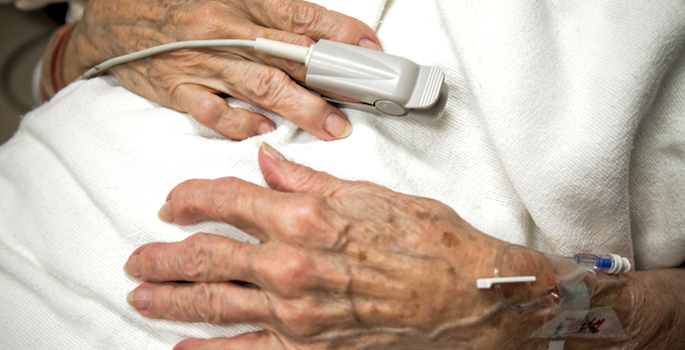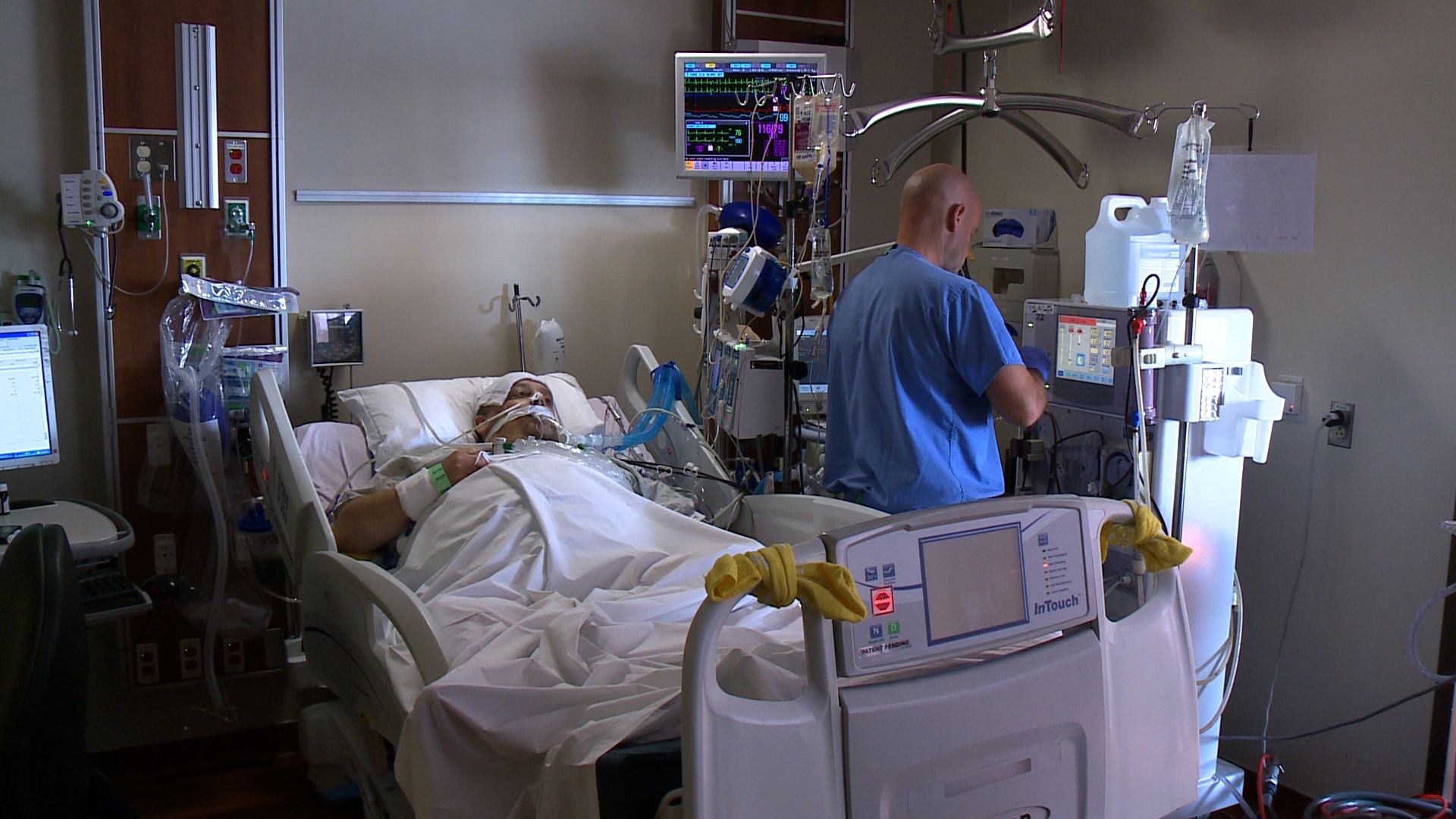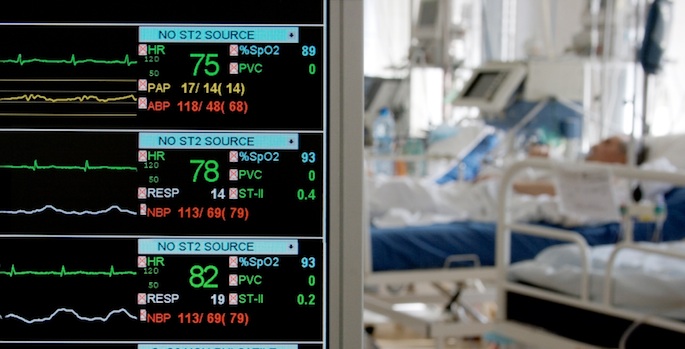Delirium
-

Delirium and mortality reexamined
A multicenter study of ICU patients found that in the hospital, delirium was associated with a nearly three-fold increase in risk of death the following day, but after discharge there was no association between delirium and mortality. Read MoreJul 8, 2021
-

Dexmedetomidine and delirium
The sedative dexmedetomidine, when administered during or after heart surgery, is associated with postoperative delirium and adverse outcomes. Read MoreJun 21, 2021
-

Vanderbilt, Zambia researchers find delirium in hospitalized patients linked to mortality, disability in Sub-Saharan Africa
Delirium, a form of acute brain dysfunction, is widespread in critically ill patients in lower resourced hospitals, and the duration of delirium predicted both mortality and disability at six months after discharge, according to a study published in PLOS ONE. Read MoreFeb 11, 2021
-

Damage, disruption, delirium
New findings suggest that treatments that decrease oxidative damage might help with postoperative delirium that occurs in up to 30% of cardiac surgery patients. Read MoreApr 20, 2020
-

Sedative-associated delirium increases risk of dementia
A Vanderbilt study of more than 1,000 intensive care unit patients around the country, nearly three-fourths of whom experienced delirium, showed that many drugs given to sedate patients in the ICU are actually increasing their chances of — and duration of — delirium instead of helping them recover. Read MoreMar 29, 2018
-

Study seeks to aid diagnosis, management of catatonia
Catatonia, a syndrome of motor, emotional and behavioral abnormalities frequently characterized by muscular rigidity and a trance-like mental stupor and at times manifesting with great excitement or agitation, can occur during a critical illness and appear similar to delirium. But the management strategies are vastly different. Read MoreDec 7, 2017
-

Delirium, benzos and the pediatric ICU
With other risk factors held equal, children who received a benzodiazepine sedative drug were nearly three times more likely to experience delirium – confused thought – the following day. Read MoreOct 2, 2017
-

Delirium in the ED
Interventions for delirium in the emergency department setting are needed to preserve patients’ long-term function and cognition, Vanderbilt investigators have found. Read MoreMar 20, 2017
-

Delirium awareness promoted by Vanderbilt physicians
Today is the inaugural World Delirium Day, created to raise delirium awareness and inspire positive action among health care providers. Read MoreMar 15, 2017
-

Risk factors for delirium
High levels of blood markers for vascular endothelial dysfunction were associated with longer periods of confusion in ICU patients, Vanderbilt researchers have discovered. Read MoreSep 13, 2016
-

Delirium increases long-term disability
Patients who suffer a longer duration of delirium in the intensive care unit are more likely to experience long-term disability after discharge. Read MoreMar 17, 2014
-

Long-term brain impairment too common after critical illness
A recent Vanderbilt study shows a significant number of patients are entering I.C.U.’s throughout the world with no evidence of cognitive — brain related issues, but are leaving with symptoms associated with mild Alzheimer’s or Traumatic Brain Injury. Barb Cramer has more. Read MoreOct 8, 2013
-

Study finds cognitive deficits common after critical illness
Patients treated in intensive care units across the globe enter their medical care with no evidence of cognitive impairment but often leave with deficits similar to those seen in patients with traumatic brain injury (TBI) or mild Alzheimer’s disease (AD) that persist for at least a year, according to a Vanderbilt University Medical Center study published today in the New England Journal of Medicine. Read MoreOct 3, 2013
-

A role for blood vessels in delirium?
Dysfunction of the endothelial cells that line blood vessels may contribute to delirium and coma in critically ill patients – and could be a target for therapy. Read MoreApr 15, 2013
-

Grant to bolster care of ventilated ICU patients
Vanderbilt University Medical Center investigators have received a $2.8 million grant from the National Heart, Lung, and Blood Institute (NHLBI) to continue studying ways to improve sedation management for intensive care unit patients who are on mechanical ventilators. Read MoreNov 15, 2012
-

Pathways to delirium in the ICU
Study suggests that the “kynurenine” biochemical pathway could be a target for reducing delirium and coma in critically ill patients. Read MoreApr 17, 2012